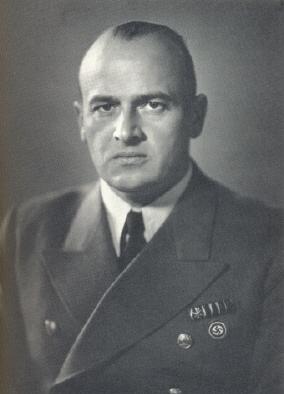
Edward Winter

Hans Frank (official Nazi photograph circa 1938)
Some information about Hans Frank (1900-1946), the most prominent Nazi leader to be strongly interested in chess, is available in the books on Alekhine by P. Morán and L. Skinner/R. Verhoeven. Here, we begin by giving a series of photographs of him, i.e. a selection from those published in Deutsche Schachblätter (1936-1941).
The first one was taken in Frank’s ministerial office on 21 February 1936:
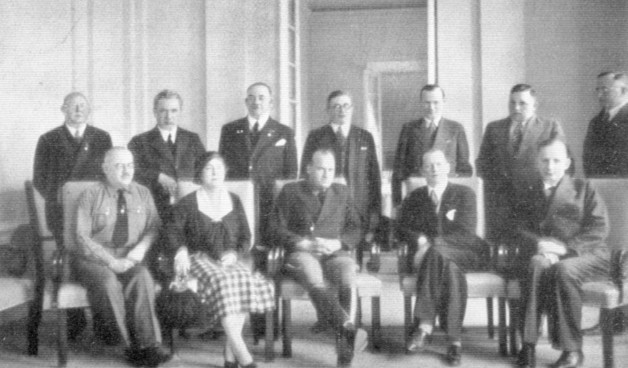
The caption identifies those sitting as (from left to right) ‘Zander, Frau Dr Aljechin, Reichsminister Dr Frank, Dr Aljechin, Richter’ and those standing as ‘Schlage, Post, Miehe, Helling, Sämisch, Oberstaatsanwalt Dr Bühler, Landgerichtsrat Dorn’.
In August 1937 Deutsche Schachblätter published the following picture of Post, Zander, Frank, Euwe, Miehe and Bogoljubow, under the heading ‘Weltmeister Dr Euwe in Berlin’:

In the 1 December 1937 issue, Frank was put on the front page:

Shortly before Christmas, 1940 Frank was presented with a chess table carved by Ukrainian mountain farmers, and the 1 February 1941 Deutsche Schachblätter deemed the event worth two-thirds of a page and the inevitable photograph (with Frank in the centre):
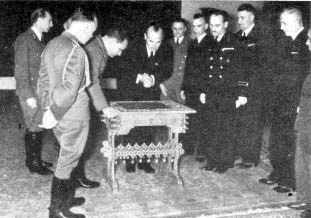
Finally, in November 1941 the magazine had the following picture, taken in Cracow, of Post, Frank and Alekhine seated, with Mross and Schmidt standing:
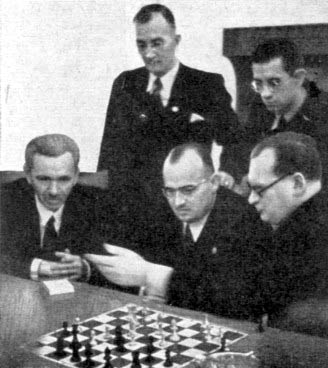
Deutsche Schachblätter ceased publication in March 1943. In Nuremberg on 16 October 1946 Hans Frank, having been convicted of war crimes and crimes against humanity, was hanged.
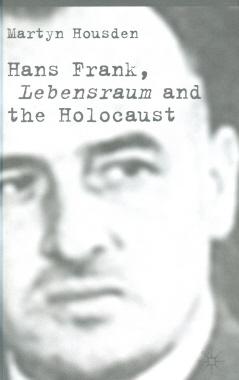
The following game, from a ten-game blindfold exhibition by Sämisch, was published on pages 87-88 of Deutsche Schachblätter, 15 March 1936, with annotations by White:
Friedrich Sämisch – Hans
Frank
Berlin, 2 March 1936
Giuoco Piano
1
e4 e5 2 Nf3 Nc6 3 Bc4 Nf6 4 d3 Bc5 5 Nc3 d6 6 Be3 Bb6 7 Qd2 h6 8 Nd5
Be6 9 Nxf6+ Qxf6 10 Bxe6 Qxe6 11 Bxb6 axb6 12 a3 O-O 13 O-O f5 14 Qe2
f4 15 c3 g5 16 Ne1 g4 17 f3 h5 18 Kh1 Kf7 19 Nc2 Rg8 20 Rae1 Qf6 21
Nb4 Ne7 22 Nd5 Nxd5 23 exd5 Raf8 24 c4 Rg7 25 d4 Rg5 26 dxe5 Rxe5 27
Qd2 Rxe1 28 Rxe1 Re8 29 Rxe8 Kxe8 30 Qe2+ and Sämisch’s offer of a
draw was accepted by the Reichsminister.
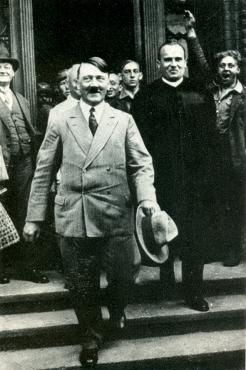
Adolf Hitler and Hans Frank
(3527)
From 1939 to 1945 Hans Frank kept a diary, 11,000 typewritten foolscap pages, comprising 38 volumes [or 43 volumes; see C.N. 5533], and some of the material has been published over the years. One such publication (from which the above statistics are taken) is Hans Frank’s Diary by S. Piotrowski (Warsaw, 1961). It is a 320-page book, but the diary excerpts do not begin until page 207. No references to chess have been noted, but we wish to ascertain whether Frank’s complete Tagebücher did ever mention Alekhine, Bogoljubow or, more generally, chess under the Nazi regime. Has the matter ever been investigated by, in particular, Polish or German chess researchers?
The Foreword to the above-mentioned book (page 6) states:
‘Hans Frank’s Diary was handed over to the Polish authorities after the close of the Nuremberg trial and is now in the archives of the Ministry of Justice in Warsaw.’
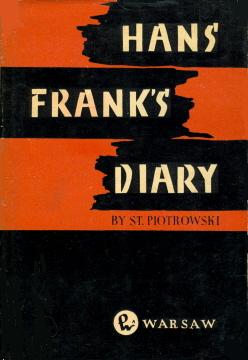
We also have the longer edition Dziennik Hansa Franka by S.
Piotrowski (Warsaw, 1957).
Below is a picture of Hans Frank in gaol following the fall of the Third Reich:
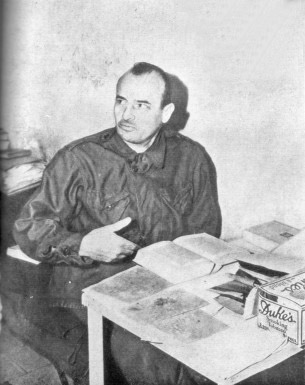
(3562)
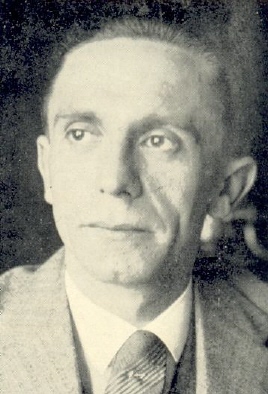
Joseph Goebbels
From page 659 of Alexander Alekhine’s Chess Games, 1902-1946 by L.M. Skinner and R.G.P. Verhoeven (Jefferson, 1998) comes this passage concerning Munich, 1941:
‘The tournament started on 8 September ... A large reception was held on the evening of the first day. This was attended by leading lights from the Nazi Party, the State Government and the Wehrmacht. ... The Chief Executive of the Großdeutscher Schachbund, Ehrhardt Post, spoke on the importance of forming a new chess organization ... In his speech, he also acknowledged the debt due to the two Reichsministers present, Dr Josef Goebbels and Dr Hans Frank, for their generous support of the tournament.’
See also page 150 of Deutsche Schachblätter, 1 October 1941. Did any German newspapers of the time have photographs of, or reports on, the reception?
(4381)
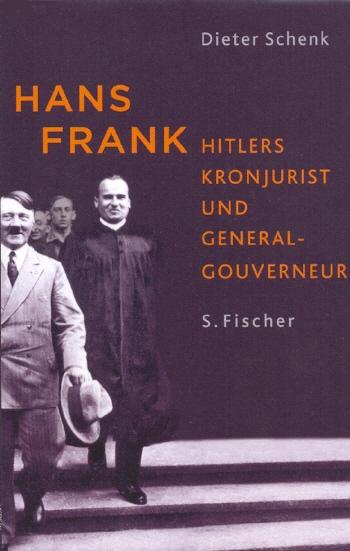
Edward Hamelrath (Memphis, TN, USA) draws attention to a new book, Hans Frank (subtitle: Hitlers Kronjurist und Generalgouverneur) by Dieter Schenk (Frankfurt am Main, 2006) and quotes a reference to chess on page 177 (given below in our translation):
‘Frank was extremely interested in chess. He not only possessed an extensive library of chess literature but was also a good player, and he even “received” the Ukrainian chess master Bogoljubow at the castle. On 3 November 1940 he organized a chess congress in Cracow. Six months later he announced the setting-up of a chess school under Bogoljubow and the chess master Dr Alexander Alexandrovich Alekhine, and he visited a chess tournament in October 1942 at the “Literary Café” in Cracow.
Goebbels truly exploded when he heard of Frank’s activities:
“Frank is pursuing a policy which is anything but that sanctioned by the Reich. I have been shown letters in which he orders the setting-up of a chess seminar in Cracow under Polish management. That is evidently now very important when it comes to providing the necessary basic foodstuffs for the Reich and to putting together the organization that this requires. Frank sometimes gives the impression of being half mad. Some of the incidents that have been reported to me concerning his work are simply dreadful.”’
The Goebbels quote comes from his diary, and in an endnote on page 443 of the book the exact source is specified as ‘Goebbels Tagebuch, Teil II, Band 5, 21.8.1942’.
(4819)
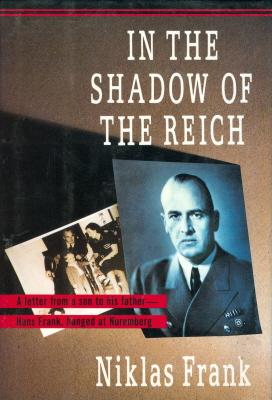
To the Chess Notes main page.
To the Archives for other feature articles.
Copyright: Edward Winter. All rights reserved.